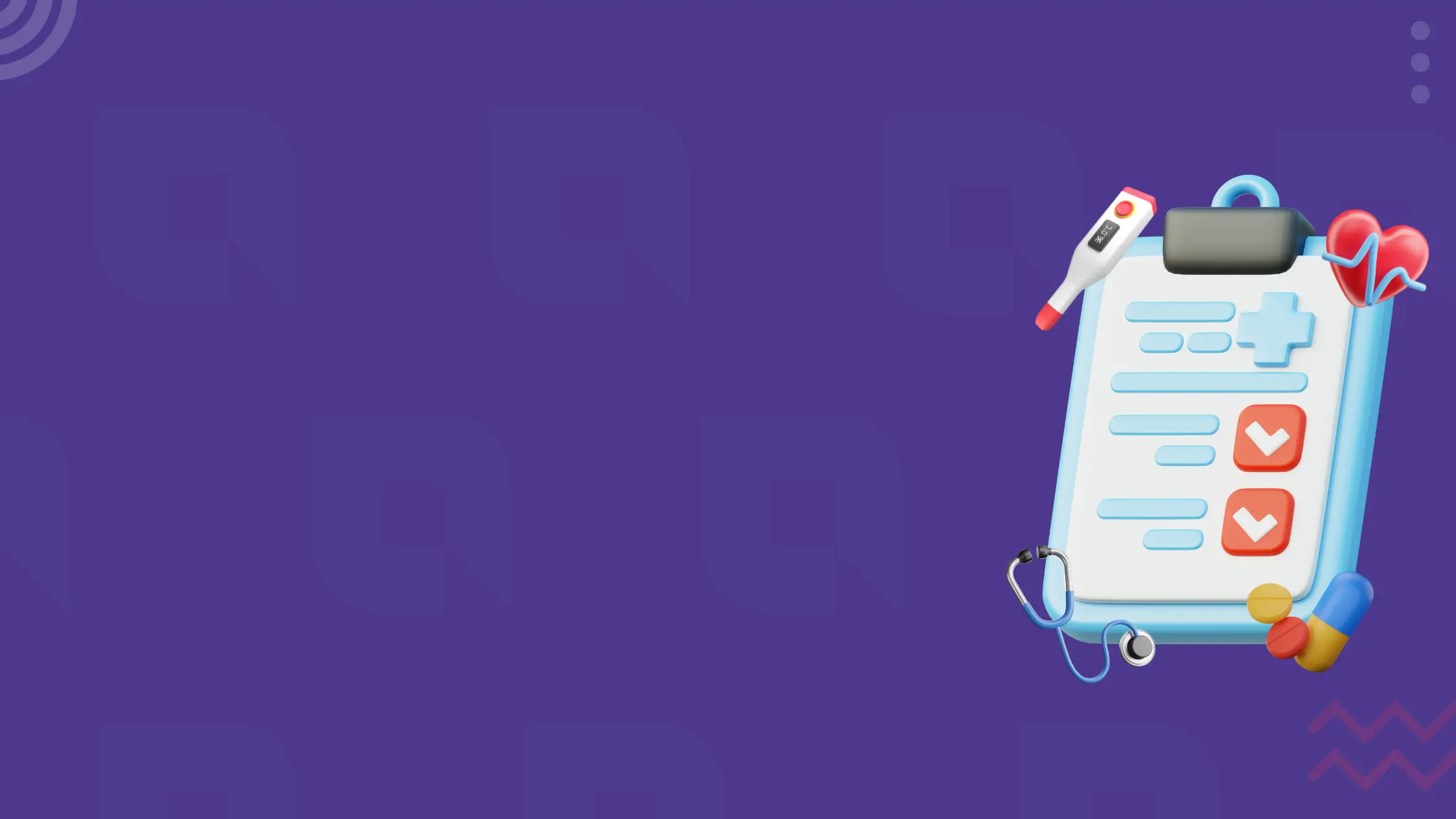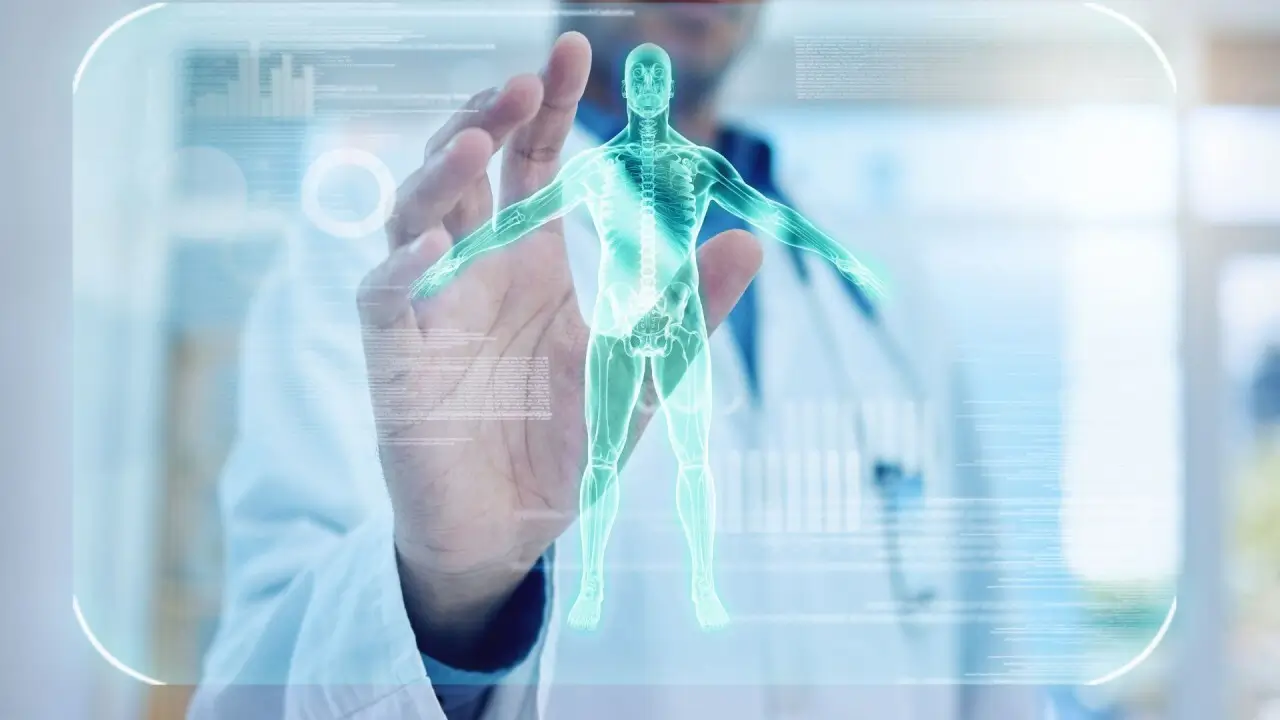Contact us
Contact us today to explore how our AI-driven technologies can help your healthcare organization with tailored solutions.


22
Jan. 2537
VIEWSThe healthcare sector is undergoing a radical transformation, driven by advancements in artificial intelligence (AI). In 2025, AI is set to revolutionize healthcare in ways that were previously unimaginable, enhancing patient care, streamlining operations, and enabling personalized treatments. This comprehensive guide will explore the top AI innovations in healthcare, the potential impact on North American and Canadian healthcare systems, and the future of healthcare as shaped by technology.
As AI continues to evolve, healthcare providers and organizations are increasingly adopting these technologies to improve clinical outcomes, reduce costs, and enhance overall operational efficiency.
In this blog, we will discuss the emerging AI trends set to transform healthcare in 2025, with a focus on innovations that promise to shape the future of patient care, diagnosis, and administrative processes

In 2025, AI will play a central role in diagnostics, offering unparalleled precision in detecting diseases at early stages. Machine learning models trained on vast datasets of medical images, genetic information, and patient histories will enable AI systems to identify patterns and anomalies that might be overlooked by human doctors. The ability to analyze vast amounts of data at incredible speeds is the key to improving diagnostic accuracy and reducing human error.
AI applications in medical imaging are already showing remarkable success in detecting conditions such as cancer, heart disease, and neurological disorders. By analyzing medical images, AI models can spot early signs of diseases like breast cancer or brain tumors, potentially saving lives through earlier intervention.
AI models, when integrated into imaging systems, can learn to recognize patterns in radiology images such as X-rays, MRIs, and CT scans. This ability allows for quicker diagnoses and assists medical professionals in making informed decisions, leading to improved outcomes.
Genomic medicine, which leverages AI to interpret genetic data, is expected to revolutionize personalized treatment plans. AI algorithms can analyze a patient’s genomic data to predict how they will respond to various treatments. This can significantly enhance the precision of medical care, providing tailored therapies that are more effective and have fewer side effects.
For instance, AI is being used to map out the genetic markers of diseases like cancer and diabetes, allowing healthcare providers to create individualized treatment plans. With these advances, North American and Canadian healthcare systems will be able to provide more accurate, personalized care.
Predictive analytics powered by AI is poised to transform how healthcare providers manage patient care. By analyzing historical data, AI can predict the likelihood of a patient developing a specific condition, allowing for proactive interventions. This not only helps in early detection but also in prevention, ultimately reducing the strain on healthcare systems.
AI-driven predictive models can analyze patient data to identify individuals at high risk for chronic diseases such as heart disease, diabetes, or hypertension. For instance, AI algorithms can identify patterns in a patient’s lifestyle, medical history, and even genetic factors to predict the likelihood of certain conditions.
With the help of AI, healthcare professionals can provide timely interventions, recommend preventive care, and customize health strategies to manage potential risks before they develop into severe issues. In 2025, AI will make it possible for healthcare systems in North America and Canada to implement widespread preventive care programs, potentially reducing the prevalence of chronic diseases.
AI is also making strides in predicting and managing disease outbreaks. Using historical epidemiological data, AI models can track the spread of infectious diseases, predict potential outbreaks, and assess the effectiveness of control measures. This innovation can be invaluable for public health organizations, helping them to take proactive steps in managing pandemics and other widespread health crises.
In 2025, virtual health assistants powered by AI are set to become an integral part of the healthcare ecosystem. These AI-driven assistants will enhance patient engagement by providing personalized care recommendations, answering medical queries, and offering reminders for appointments or medication.
AI chatbots and virtual assistants are already being deployed in healthcare settings to assist patients in managing their care. These chatbots can answer questions about symptoms, treatment options, and medication side effects, providing patients with timely information that empowers them to take charge of their health.
In addition to providing information, AI-powered assistants can track patient health metrics and offer personalized suggestions. For example, a virtual health assistant could remind a patient to take their medication or suggest lifestyle changes based on real-time data.
As healthcare becomes more patient-centric, AI-driven virtual assistants will be central to telemedicine. By integrating remote monitoring tools, these AI assistants will be able to track vital signs and alert healthcare providers if any abnormalities are detected. This innovation will enable healthcare professionals to monitor patients’ health remotely, ensuring continuous care without the need for frequent in-person visits.
One of the most promising AI innovations in healthcare is its application in drug discovery and development. In 2025, AI is set to speed up the traditionally lengthy and expensive process of developing new drugs. AI algorithms can analyze molecular structures and predict which compounds are most likely to lead to effective treatments, dramatically accelerating the development timeline.
AI algorithms will also be used to predict which drugs will work best for individual patients based on their genetic makeup. By analyzing data from clinical trials, AI can help identify optimal treatment plans and predict patient responses. This approach to precision medicine will not only enhance the effectiveness of treatments but also reduce the occurrence of adverse reactions.
AI-powered systems will also assist in clinical trials, improving patient recruitment by identifying individuals who meet the criteria for specific studies. Additionally, AI can monitor patient progress throughout the trial, ensuring the timely collection of relevant data.
Robotic surgery, aided by AI, is expected to see significant advancements in 2025. AI-powered robotic systems can perform minimally invasive surgeries with greater precision, reducing recovery times and improving patient outcomes.
Robotic systems equipped with AI algorithms can analyze surgical data in real-time, making precise adjustments during procedures. This results in less invasive surgeries, smaller incisions, and quicker recovery times. For patients, the benefits of robotic surgery are clear: fewer complications, reduced risk of infection, and faster healing.
AI-enhanced surgical tools will provide real-time insights during surgeries, assisting surgeons in decision-making. For instance, AI can help doctors determine the best surgical approach by analyzing a patient’s medical history, anatomy, and other relevant factors.
AI is also making waves in the administrative side of healthcare. In 2025, healthcare providers will rely on AI-powered systems to streamline operations, reduce administrative burdens, and improve the efficiency of healthcare delivery.
AI will help automate tedious administrative tasks such as billing, claims processing, and insurance verifications. This will reduce human error, minimize delays, and improve revenue cycle management. AI systems can process vast amounts of billing data, ensuring accurate coding and faster reimbursement.
AI-driven tools will be used to streamline patient scheduling, improve resource allocation, and enhance the overall patient experience. By optimizing workflows, healthcare providers can reduce wait times, improve access to care, and enhance patient satisfaction.
In 2025, AI is set to reshape healthcare delivery, from precision diagnostics and predictive analytics to virtual assistants and robotic surgeries. The innovations we are witnessing today will lead to a more personalized, efficient, and cost-effective healthcare system in North America, especially in regions like Canada and the United States.
Contact us today to explore how our AI-driven technologies can help your healthcare organization with tailored solutions.
Frequently Asked Questions (FAQs) |
|---|
1. What are the key AI innovations in healthcare for 2025?
|
2. How does AI improve diagnostic accuracy?
3. What role does AI play in predictive healthcare?
|
4. How are virtual assistants transforming patient engagement?
5. What is AI’s role in personalized medicine?
|
6. How is AI accelerating drug discovery?
7. What is robotic surgery and how does it benefit patients?
|
8. How does AI enhance healthcare operations?
9. How does AI support remote patient monitoring?
|
10. Can AI help reduce healthcare costs?
|
11. How can healthcare systems in Canada benefit from AI?
|
12. What is the impact of AI on healthcare accessibility?
|
